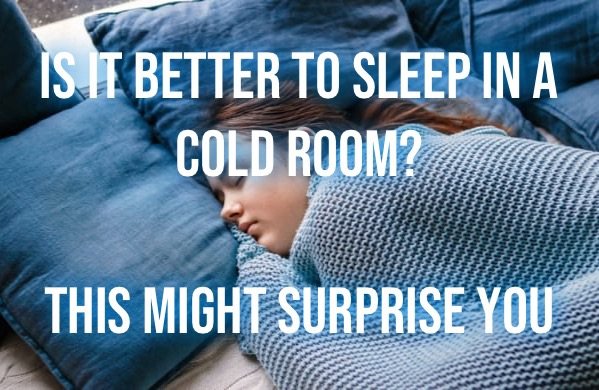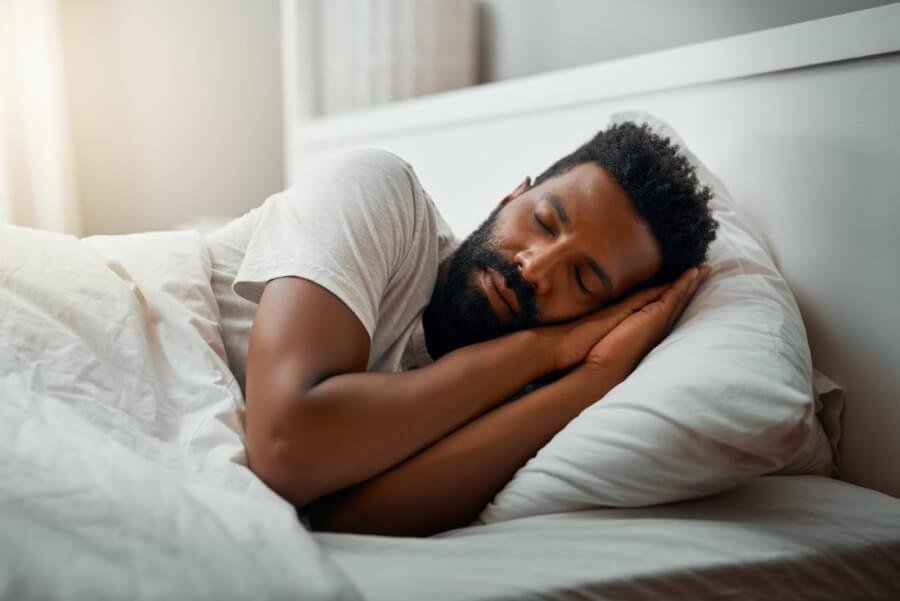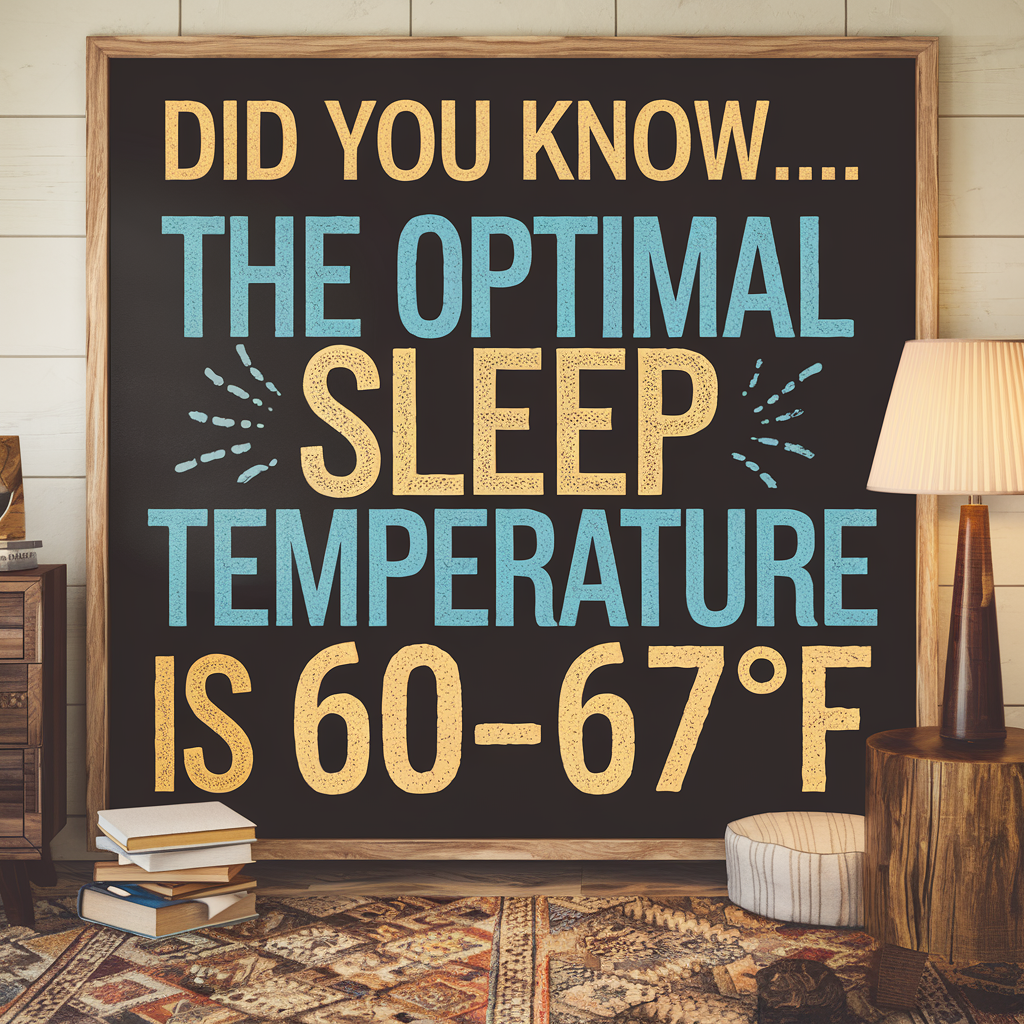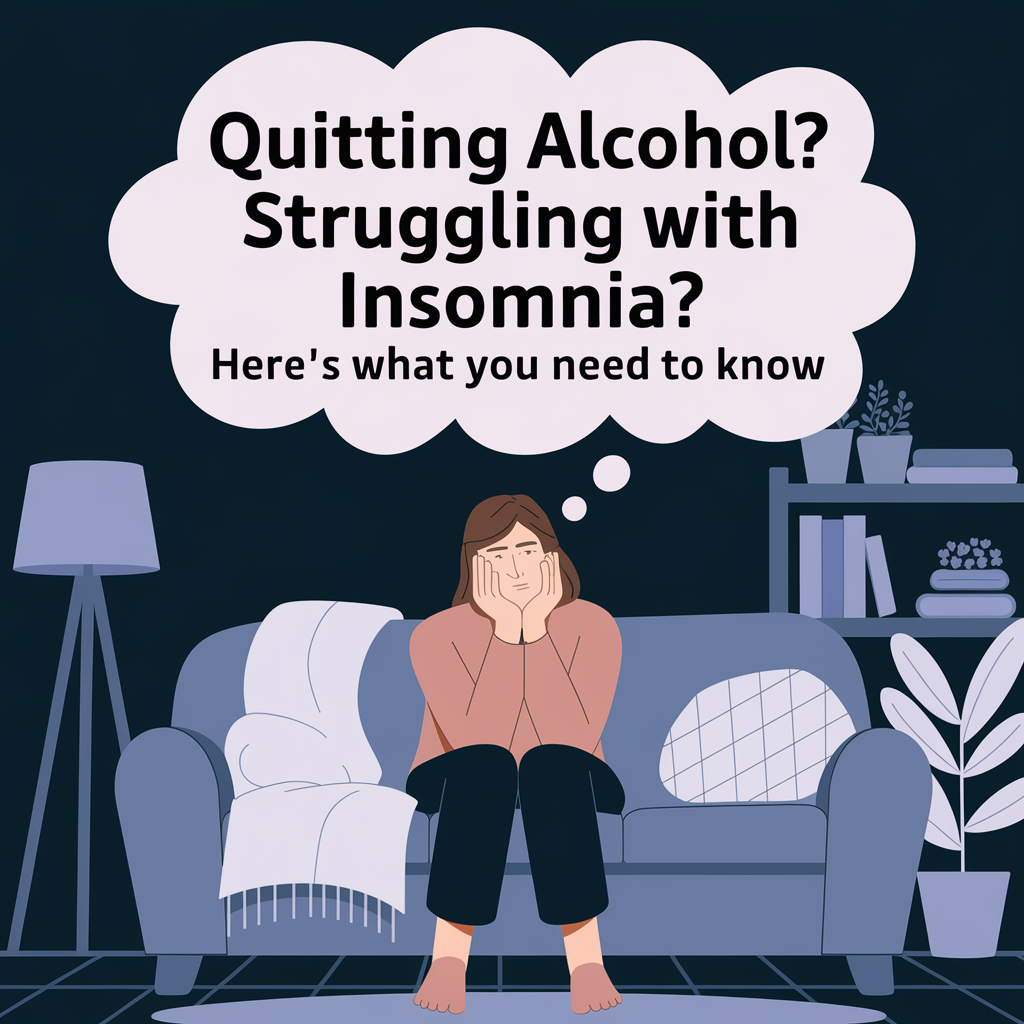
Is It Better to Sleep in a Cold Room? Here’s What I Found
I used to wonder all the time — is it better to sleep in a cold room, or am I just torturing myself with these chilly temps?Turns out, that simple question led to one of the biggest sleep breakthroughs of my life.
After years of waking up sweaty, restless, and cranky, I finally got serious about my sleep environment. And spoiler alert: yes, it is better to sleep in a cold room — at least, for most of us. When I made the switch to keeping my bedroom cooler at night, I started sleeping longer, deeper, and way more comfortably. My mornings didn’t feel like a truck hit me anymore.

Why Sleeping in a Cold Room Works So Well
Sleeping in a cold room isn’t just a preference — it’s backed by science. When your body prepares for sleep, your internal temperature naturally starts to drop. If your room is too warm, your body has to work against that, which can mess with your sleep cycles and leave you tossing and turning.
Once I lowered the temp in my bedroom to around 65°F, it was a game-changer. I started falling asleep faster and waking up far less in the middle of the night. And when I added in a smart thermostat to keep things consistent? Even better. If you’ve never tried it, I can’t recommend it enough — this WiFi thermostat changed my sleep and even saved me money on my energy bill.

The Ideal Room Temperature for Sleep
So is it better to sleep in a cold room? In my experience — absolutely yes. For most people, somewhere between 60 and 67°F hits the sweet spot. Personally, I’ve found that 65°F gives me the best sleep. Any warmer, and I’m restless. Any colder, and I’m pulling the blanket over my face like a burrito.
To dial in that perfect temp, I picked up a digital hygrometer and thermometer that reads both temperature and humidity levels. It helped me figure out when my room felt cool versus when it actually was. That little gadget changed the game.
Is It Bad to Sleep in a Cold Room?
Some folks wonder if sleeping in a cold room is actually bad for you. If your bedroom feels like the inside of a freezer, then yeah — it might not be doing your sleep any favors. I’ve tried going full Arctic before and just ended up with a freezing nose and tense muscles.
But keeping the room comfortably cool with the right bedding is totally different. A breathable setup — like my current combo of light sheets and my new cooling comforter for hot sleepers — makes a world of difference without overdoing it.

The Surprising Health Benefits of Sleeping in a Cool Room
Once I started sleeping in a cooler environment, I noticed more than just better sleep — I felt sharper in the morning. There’s science behind it too: cooler temps can help boost melatonin production, regulate glucose, and even slightly raise metabolism while you sleep.
I wasn’t chasing health benefits when I turned the temp down — I just wanted to sleep better. But now that I know the added perks, I’m definitely not going back.

How Humidity Plays a Role in All of This
One thing I didn’t expect? Humidity affects sleep just as much as temperature. A hot, humid room will ruin your night faster than anything. I used to think my fan or A/C was broken, but nope — it was just the sticky air messing with my comfort.
Running a small bedroom dehumidifier helped take that heavy, damp feeling out of the air. Combined with the right temp, it’s one of the best sleep upgrades I’ve made. If you’re not sure how humidity’s impacting your rest, here’s more on why bedroom humidity can make you tired.

Why I Don’t Use Heavy Comforters Anymore
Back in the day, I used to pile on thick, fluffy comforters thinking that’s what you needed in a cooler room. Turns out, heavy bedding holds in heat like a sauna. I’d end up sweating through the night and wondering why I still felt gross in the morning.
Now I’ve switched to a lightweight cooling comforter that’s designed specifically for hot sleepers like me. One side is cool to the touch, the other just cozy enough. It’s made it so much easier to enjoy the cold room without waking up sweaty.
Layering for Comfort: My Go-To Sleep Setup
With the room temp down and humidity under control, layering became my secret weapon. I start with a light sheet, then my cooling comforter. If I wake up cold (which is rare), I keep a breathable throw nearby.
The goal is flexibility — not insulation. Once I learned how to stay warm at night without sweating by layering properly, sleep finally stopped feeling like a battle.
If you’re dealing with night sweats or can’t seem to find that balance, I broke it all down in this easy guide to staying warm at night without overheating.

Why My Thermostat Is My Best Friend Now
I used to manually adjust the temp before bed and again when I woke up — which meant forgetting half the time and waking up miserable. Now, I’ve got a WiFi thermostat that handles everything for me. I schedule it to cool things off before bed and gently warm up the house by morning.
This upgrade honestly changed our sleep and even helped us cut energy costs. I wrote all about it in my full review: This WiFi thermostat changed how we sleep and saved us money.
Why Fans Still Matter — Even in the Cold
Even in a cooler room, I still sleep with a fan. Not just for air circulation — but for the noise. There’s something about that steady hum that keeps my brain from spiraling.
If you’re like me and need that fan noise to fall asleep, I tested a bunch to find the best ones. Here’s the loud fan I rely on every night. Cold air and white noise? That’s a win-win.

Sleeping Cold Has Changed My Mornings
I used to snooze the alarm four times. Now I’m waking up refreshed, sometimes even before the alarm. That groggy, heavy feeling? Gone.
Sleeping in a cold room did that — especially once I combined it with the right tools: smart thermostat, fan, dehumidifier, and breathable bedding. I’m not exaggerating when I say it feels like I’ve reclaimed my nights (and mornings).
Got Night Sweats? Humidity Might Be to Blame
I thought sweating at night was just my body being weird… until I realized how much bedroom humidity was playing a role. High humidity traps heat and makes it feel like you’re sleeping in a damp sauna — even if the air temp feels fine.
I wrote a full breakdown on how I fixed that problem here: Bedroom humidity and sleep: why you might be waking up tired. If your sheets are sticking to your skin, that article’s for you.

Want to Really Fix It? Start Tracking Your Air
I didn’t even know my room’s humidity was off until I got a digital hygrometer. Now I check it like I check the weather — and adjust my fan, humidifier, or dehumidifier accordingly. It takes out all the guesswork.
The little 3-pack I use is affordable and accurate. Here’s the one I rely on every night: this digital hygrometer I trust for sleep.
Don’t Forget About Dehumidifiers
Once I realized my humidity was spiking at night (especially in summer), I added a dehumidifier for the bedroom and wow — what a difference. The air feels lighter, my sheets stay dry, and it’s way easier to stay cool without waking up freezing or sticky.
This is the model I swear by now: the best bedroom dehumidifier for sleep. It even has a hose for continuous draining, which makes things low-maintenance.

If You Made It This Far…. Yes, It’s Better to Sleep in a Cold Room
After testing everything — temperature, airflow, bedding, humidity, gadgets — I can tell you firsthand: it really is better to sleep in a cold room. But it’s not just about cranking the AC and hoping for the best.
It’s about controlling your entire sleep environment — and doing it in a way that fits your life. Whether that’s layering smarter, using a fan for noise, or setting your thermostat to do the work for you, I promise: better sleep is possible.
If you’re still struggling to find that sweet spot, this might be your next step: why this is the best blanket for hot sleepers. It made a difference for me — and it might for you too.
As an Amazon Associate we earn from qualifying purchases through some links in our articles.


